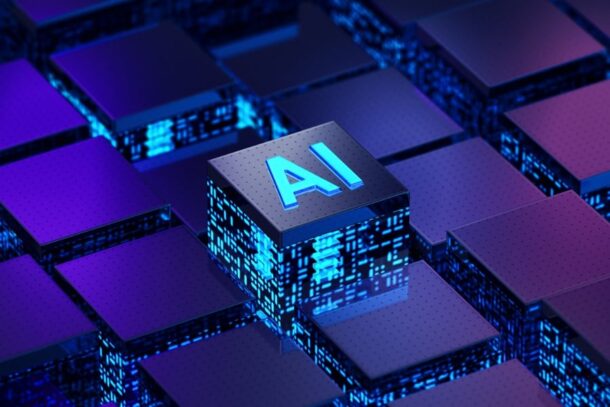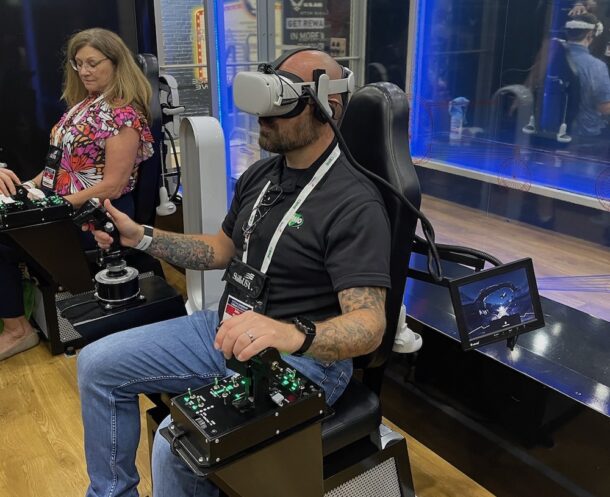Mechanical Hub is kicking off a series of posts of what we see as trending topics for 2024. The first in the series is Artificial Intelligence.
As an editor covering the PHVAC industry for more than 20 years, not too much has been as polarizing as the topic of Artificial Intelligence (AI). Okay, maybe press technology, tape vs. dope or drain cleaning is plumbing. But I digress.
What’s interesting to me is that AI is all around us, and whether we know if it “shits in the woods,” does that make it okay? Listen, we’ve all had conversations around a certain topic only to find out later that said topic has now filled your social media feed. But we’ve become to desensitized to that by now, haven’t we?
Recently, the once revered Sports Illustrated magazine employed a product review columnist, that wasn’t. I mean he didn’t exist. It was revealed the columnist was AI generated, picture and all, and so was the creation of content. So what information is real or believable?
Coming full circle, I was working recently on a case study regarding a pretty sizable mechanical contractor and a boiler retrofit. I was told to reach out to the marketing department for some background info and some initial quotes on the project. When I submitted the story to the contractor for review and approval, I was asked if I had used ChatGPT for the article. Say what?! As it turns out, I had been working— via email—with a PR intern and he used ChatGPT pretty extensively. Turns out, the two sentences I included in the text to describe their own company were, in fact, auto generated. But why? Easy and efficient means of collecting information, I guess.

But there is much more to AI than just chat bots—such as data collection and machine learning, for example. There are some in the industry that follow AI much more closely than me, and there is a growing consensus is that we need to embrace AI. “The crux of Artificial Intelligence is that it is already here, so we have two choices: either get shaped by it or we shape it,” says Anmol Bhasin, Chief Technical Officer, ServiceTitan.
John Mullen, industry subject matter expert, has an optimistic take on AI and how it will shape our industry over the next decade or two. “My philosophy on AI remains malleable on a personal front always, as we continue into this new era of AI being everywhere. With that said, it’s clear that plumbing and mechanical work has been having a revolutionary moment with the advancement of technology in construction materials and tools. These next few years will undoubtably keep the skilled trades trending in the right direction as an opportunity to work, learn and live well,” says Mullen.
There are so many opportunities in our industry for advancement with artificial general intelligence (AGI) and GPT chat bots that assist with dataset specific outputs, continues Mullen. “I’m excited for the organization of efforts, focused on the sustainability of our planet and how it can help us build resilience. Quality data is what makes artificial intelligence impactful, and if harnessed correctly, we could make transformative changes and provide an undeniable increase to the quality of our daily lives.”
Yet, is there any oversight on AI? Last October, the White House released a statement on AI which reads, “Artificial intelligence (AI) holds extraordinary potential for both promise and peril. Responsible AI use has the potential to help solve urgent challenges while making our world more prosperous, productive, innovative, and secure. At the same time, irresponsible use could exacerbate societal harms such as fraud, discrimination, bias, and disinformation; displace and disempower workers; stifle competition; and pose risks to national security. Harnessing AI for good and realizing its myriad benefits requires mitigating its substantial risks.
“The Federal Government will enforce existing consumer protection laws and principles and enact appropriate safeguards against fraud, unintended bias, discrimination, infringements on privacy, and other harms from AI. Such protections are especially important in critical fields like healthcare, financial services, education, housing, law, and transportation, where mistakes by or misuse of AI could harm patients, cost consumers or small businesses, or jeopardize safety or rights. At the same time, the Administration will promote responsible uses of AI that protect consumers, raise the quality of goods and services, lower their prices, or expand selection and availability.”

John Mullen is continuously seeking out the new trends and technology. Here, John is checking out the latest in VR tech.
However, as of right now, says Mullen, we are in the organize phase, where data is being collected and integrated without a real unbiased vetting of knowledge. This is an era that will be ripe with scams and schemes but before long, we will be in the most optimized and transparent version. Most will utilize artificial intelligence and scale their needs to help assist with the things we no longer have the passions to pursue. “It looks to me like skilled trade work is going to get very technical over the next few years and that is super exciting. Having a general understanding of how to use and prompt AI models as a service provider will become a standard skillset for the workforce. This becomes truer each day, as contractors build buildings for the most technical end users the world has ever seen,” says Mullen.
According to Bhasin, data is an industrial revolution in and of itself, and AI is taking it one more level forward. “Over the last year, year and a half AI has leveled the playing field because the barrier to entry has suddenly and dramatically dropped.
For example, “For Service Titan’s Titan Intelligence, there were peculiar scenarios where we saw opportunities for optimization and started putting algorithms there to facilitate outcomes for our customers. If you bridge that and collect all of these features together, the results are best practices for the contractors using AI algorithmically to facilitate those specific outcomes of top line revenue efficiency and effectiveness,” says Bhasin.
Mullen says that we must stay vigilant about AI during the initial programming. “This technology was developed to outpace humans in all the tasks and protocols we, the collective society, have established. This will undoubtably lead to the emergence of information about how and why we do the things we do, leading to gained efficiencies and greater understanding of general principles,” says Mullen.
But what about those legitimate concerns with AI such as data breaches, social manipulation, fake news, etc.? “Much of this will be resolved through exposure and transparency,” says Mullen. “I think we are going to learn a lot about ourselves over the next few decades and with the help of AI, we’ll have an easier time determining good from bad with analysis and visualizations of data.”
Bhasin says that world of hackers is an enemy that is never going away so you have to keep up on your game. An ironic twist, “All of this AI stuff we’re talking about; it is the similar set of technologies we are placing against for safeguarding from nefarious actors.” It’s like using venom from the snake as an antidote for a snake bite, right?
And what is a deepfake, and is it concerning? Deepfakes are very concerning, says Mullen. As part of the general terms and agreements, being on social media means you have donated your personal information to a large language model (LLM) that has more than enough audio and visual content to create a digital avatar of you, in most cases. This part of the topic can get quite controversial when discussing digital verification, but truly there may not be another way to ensure we have our own voice. “Only through verification, can we ensure our privacy and sovereignty on the internet. There are still federal policies being discussed surrounding these “growing pains” and I follow them keenly to remain aware and able to help identify fraud,” says Mullen.
Will AI be replacing real, tangible jobs anytime soon? Mullen tends to be bullish on AI’s ability to create new roles and purpose. “Certainly, in the short term, work is going to increase for the skilled trades as we build more intelligent facilities and infrastructure for a new digital landscape.”
Mullen believes that AI and robotics together will help us build a prosperous future, full of abundance that for the first time in our history, gets shared for the betterment of people. When we can create locally the needs of our communities, our sustainability increases drastically. “It’s an interesting experiment that is being played out in real time that will inevitably have some bugs but again, I’m an optimist,” says Mullen.
In the end, says Mullen, it seems that having respect for how it works, why now and what it could become, seems like a smart move. There is no putting this genie back in its bottle. Over the next few years innovation competition is going to be at an all-time high and periods like these can leave a giant mark on our timelines.
“I hope to see our industry and tradespeople use these new technologies and create new ones with it, as it was intended. Creating and building the world around us is something we will continue to do forever. Considering this another tool of the trades can preserve the craft and ‘protect the health of the nation,’” says Mullen.



